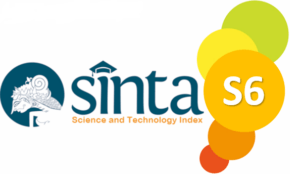| ..:: MAIN MENU ::.. |
| About The Journal |
| Focus & Scope |
| Peer Review Process |
| Author Guidelines |
| Publishing System |
| Privacy Statement |
| Copyright & License |
| Author Fees |
| Contact Us |
About the Journal
About the Journal
Focus and Scope
Focus:
Jurnal Eksplorasi Teologi (JET) is dedicated to the exploration and scholarly examination of theological concepts, religious beliefs, and spiritual practices from various traditions. It seeks to foster interdisciplinary dialogue and advance understanding in the study of religion and theology. By providing a platform for rigorous research and thoughtful discourse, the journal aims to contribute to both academic scholarship and practical applications in the field of theology.
Scope:
-
Research Areas:
- Systematic Theology: The study of theological doctrines and their systematic organization, including topics such as the nature of God, Christology, soteriology, and eschatology.
- Historical Theology: Examination of the development of theological ideas and doctrines throughout history, including the study of key figures, movements, and historical contexts.
- Biblical Studies: In-depth analysis of sacred texts, including exegesis, hermeneutics, textual criticism, and the historical and cultural backgrounds of the Bible and other religious scriptures.
- Philosophical Theology: Exploration of the philosophical foundations of theology, including arguments for and against the existence of God, the nature of faith and reason, and metaphysical issues.
- Comparative Theology: Comparative studies of different religious traditions, focusing on similarities, differences, and dialogues between various theological systems and practices.
- Practical Theology: Application of theological concepts to real-life contexts, including pastoral care, preaching, liturgy, and ethical issues within religious communities.
- Theology of Religion: Investigation of the nature and function of religion itself, including the study of religious experiences, beliefs, and practices from a theological perspective.
- Interdisciplinary Approaches: Integration of theology with other academic disciplines, such as sociology, psychology, and cultural studies, to offer a broader understanding of religious phenomena.
-
Types of Articles:
- Original Research Articles: Empirical or theoretical research contributing new insights to theological scholarship.
- Review Articles: Comprehensive reviews of literature, trends, or developments in specific areas of theology.
- Theoretical Papers: Proposals or critiques of theological theories and frameworks.
- Historical Papers: Studies on the historical development of theological ideas, figures, and movements.
- Biblical Exegesis: Detailed analysis of specific biblical texts or passages.
- Practical Theology Papers: Research on the application of theological principles in practical settings.
- Case Studies: In-depth examinations of particular religious practices, communities, or events with theological implications.
Peer Review Process
The authors of the article have to pay attention to the following editorial policy provisions:
- The manuscript that has been published or in the process of publication on another publisher may not be submitted. The author should confirm that the manuscript has not been published or in the process of being published by other publishers (in sealed).
- Manuscript submitted in digital form to the Editorial Board of Jurnal Eksplorasi Teologi using the online submission provided on this website.
- Upon acceptance of the Editorial Board, the manuscript will be explored in general. Scripts which are considered incompatible with the mission of Jurnal Eksplorasi Teologi will be rejected at this stage, and will be communicated immediately to the author and the reason of disapproval.
- Manuscripts that pass the general study will be sent to at least two reviewers (blind reviewer) to be formally studied.
- Based on reviewers' comments and recommendations, the Editorial Board will make and communicate decisions regarding assessed manuscripts (accepted without revision, accepted with minor revisions, major revisions accepted, rejected due to the quality of writing and rejected because of ethical reasons writing scientific papers).
- Revised manuscript must be returned to the Editorial Board within a predetermined time. If the revised manuscript is sent past the deadline specified, it will be treated as new submissions.
Publication Frequency
JET published 12 times a year.
Open Access Policy
This journal provides immediate open access to its content on the principle that making research freely available to the public supports a greater global exchange of knowledge.
Publication Ethics Statement
JET managed by jurnalhst.com. Editing in the publishing process of JET involves the role of Peer Reviewers.
JET has a high commitment in maintaining the highest standard in publication, including by upholding compliance to publication ethics. For this purpose, the Publication Ethics of this journal refers to the Regulation of the Head of Indonesian Institute of Sciences No. 5 of 2014 on the Code of Ethics of Scientific Publications. The Publication Ethics, which is intended to respond to cases of ethical misconduct in publications, is developed in four ethical standards, based on the parties participating in the production of a journal, which are Ethical Standard for Journal Manager, Ethical Standard for Editorial Board, Ethical Standard Peer Reviewers and Ethical Standard for Authors.
When it comes to implementation, articles that show lacks of compliance to the Publication Ethics will be denied publication in JET. To prevent violations of the Publication Ethics, the Editorial Board applies software to detect plagiarism practices. In any case where violations of the Publication Ethics of a published article is detected subsequently, the Editorial Board will file a report to the appropriate authorities.




